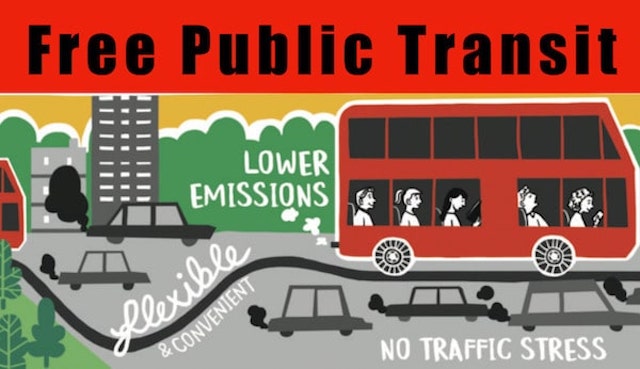Transit “systems are asking their local governments for bailouts as federal pandemic relief runs dry,” says the New York Times, “but they are also racing to reinvent themselves.” No, they are not.
Source: the Monthly Review: An Independent Socialist Magazine.
The examples of “reinvention” the Times gives mostly involve eliminating fares. But if the problem is that reduced ridership has impacted agency revenues, eliminating fares won’t restore those revenues. That’s not reinvention; it’s merely stepping up the subsidies and the need for even more bailouts.
Another example of “reinvention” offered by the article is Dallas Area Rapid Transit (DART) subsidizing Uber rides. But Uber invented Uber; increasing subsidies, again, will do nothing but increase the need for more bailouts.
The point of subsidizing Uber, said a DART official, is to “allow [travelers] to reach destinations that buses and trains do not.” “The only thing we couldn’t move was the rail tracks,” added the official, which makes the case against rail transit in just one sentence.
The only other “reinvention” mentioned in the Times article is a year-old plan by Washington Metro to build housing and shops on land it owns near its rail stations. If Metro were turning its vacant land into for-profit real estate developments, that would be a genuine reinvention. But of course this is merely one more plan to build high-density transit-oriented developments. Does anyone really want to live in such developments in a post-COVID world? If not, they become just another money pit.
These are not reinventions. They are the same old subsidies piled on subsidies that have beset transit for the last three or four decades.
As the Antiplanner has noted many times before, subsidies make transit agencies more beholden to politicians than to transit riders. Transit agencies depend so little on transit fares that none of them seem to be considering rerouting their systems so that transit can take people where they want to go rather than where the politicians have decided they should go. Increasing subsidies to transit is not a reinvention. It merely encourages transit agencies to continue to ignore the needs of potential transit riders.








